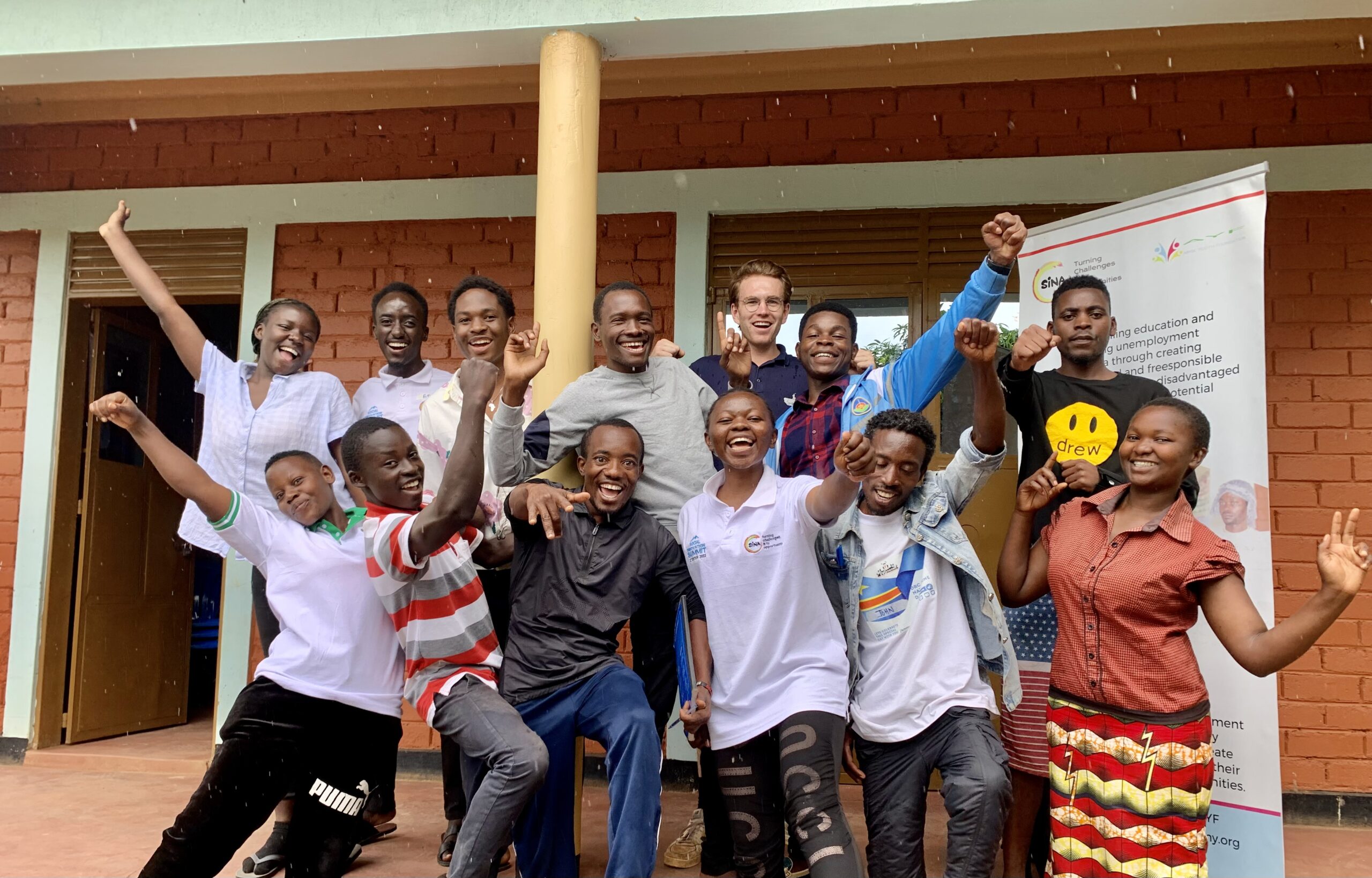Social Innovation Academy (SINA): New Grantee 2022-23
This month’s grantee spotlight shines on SINA (Social innovation Academy), a first time grantee that operates in Uganda and Tanzania.
SINA
- Provides educational and self-development programs to help disadvantaged youth master skills that can lift them out of poverty.
- Utilizes a unique five step training program that emphasizes the importance of empowerment and responsibility, emphasizing the value of creating new businesses that help the community and environment.
The Project Redwood grant of $20,000 will fund the implementation of a new Social Enterprise site at the Kyaka II refuge settlement.to employ youth. Our monies will cover costs for a project coordinator and equipment needed to collect and transform waste plastic into useful products.


Social Innovation Academy was launched in 2014 in response to the dire need for marginalized Ugandan youth, particularly displaced persons and refugees, to find sustainable employment opportunities. Core to its mission is the philosophy that sustainable success is grounded in the principle of personal responsibility – both to oneself and to the broader community.
Building upon the importance of community, SINA organizes its programs around a cost-effective and self-governed community approach to learning. There are currently eight independent community learning centers operating across Uganda and Tanzania. All follow a similar 5 step training process focused on skill mastery and self-empowerment that ultimately prepares participants to create new social enterprises that benefit themselves as well as their broader community and the environment. The goal for each community is to become self-sustaining and support expansion of the SINA concept to new communities.
Sponsor Ann Mcstay first met SINA staff while in Uganda back in 2019. She was there visiting a few other PRW grantees (among them St Paul’s, S.O.U.L and Educate!) and was immediately impressed by the focus placed on responsibility to community and a collaborative spirit where students worked to turn problem solving ideas into real products that could go to market.
As she describes it:
SINA is such a collaborative, supportive organization, and it seeds replications of its program in refugee camps, slums and impoverished communities – not just in Uganda but also in Tanzania… it is teaching entrepreneurship and leadership to marginalized young people who then go out to their communities (whether villages, cities, or remote countryside areas) to start businesses, establish educational programs, and bring needed small-scale infrastructure development and other benefits that help their countries’ disadvantaged populations become stronger economically and even politically.
SINA’s transformative practice of personal leadership training and community-focused entrepreneurship is very much like PRW’s mission to build human capital and help the poorest of the poor rise up to self-sufficiency and good lives.
This is my dream for Africa, especially for Uganda, of course, and I believe it is PRW’s dream as well.
GRANT SUMMARY AND PURPOSE
2022-23: A $20,000 grant will fund the cost of the project implementation, including internships, a project coordinator, and equipment. SINA believes the project can be self-sustainable after the initial investment for the machinery.
IMPACT
The scholars will grow personally and professionally while immediately putting learned manufacturing and teamwork skills into practice. The community will come to value “plastic waste” as a reusable commodity and a source of income. Furthermore, through the collection of discarded plastic, people in the community can earn extra income, which, although small in dollar terms, can make a massive difference for refugee families who receive only a few dollars in financial and in-kind food support from UNHCR each month. Finally, the project will create lasting and sustainable manufacturing jobs paying a fair salary with which the refugee workers can support their families, become independent of international aid and contribute economically and entrepreneurially to society in Uganda.
The SINA Community in the Kyaka II refugee settlement is opening a new Social Enterprise site for refugee youth, mainly from the DRC. The project will utilize an innovative product development and marketing model – “Business in a Box” – developed by SINA in the Bidi-Bidi refugee settlement near Uganda’s northern border. The Kyaka II enterprise will collect and transform waste plastic into useful every day and made-to-order products.
Partners include three established successful recycling businesses, including a company located in Masaka, Uganda, operating with innovative plastic-forming machinery that can transform waste plastic into durable items for market. This latter partner will support the project with training internships and provide guidance for the overall design, manufacturing, and finishing processes. After the internships, students will go through a customer-discovery process in their local surroundings to identify products of interest (cups, bowls, plates, pegs, etc.) and start their business using the plastic-forming machinery—which is simple to operate, like a 3D printer—allowing the team to create products for the local market,
SINA’s goal with this project is to establish proof of concept for the “Business in the Box” model, which will support replication of the model from one SINA community to another—scaling SINA’s impact and sharing what works.
For more information, see: socialinnovationacademy.org